The intent of the Managing across the Lifecycle (MALC) qualification is to give candidates the skills to support an organization’s service delivery by bridging the service lifecycle stages. The qualification demonstrates that candidates have learned the value of one combined service management practice as opposed to separate subject areas. ITIL processes and practices, as learnt from the lifecycle and capability streams of the intermediate certificates, are put into a context of delivering this value.
The learning outcomes are intended to bring a candidate from ITIL content knowledge to ITIL content application and integration knowledge, and provide skills that can be used in the workplace in a tangible way. Testing and validation of knowledge take place at Bloom’s taxonomy level 4 (analysing) and level 5 (evaluating), reflecting the focus on integration when compared with the ITIL intermediate qualifications. While MALC encompasses the broadest perspectives of service management skills, for example those related to project management and application design, it is not intended to teach these practices, rather to refer to them as contexts for ITIL application. A high-level understanding of these is still expected.
This qualification focuses on strategizing, planning, using and measuring ITIL practices in an integrated functioning model:
• How the service lifecycle stages form an integrated whole
• Process integration and interfaces
• Shared data / information / knowledge.
- Key concepts of the service lifecycle
- Managing services and service management
- The service lifecycle
- Service value across the different stages of the service lifecycle
- Other key concepts.
- Communication and stakeholder management
- Co-ordination of business relationship management across the service lifecycle, and the role of business relationship management in communication
- Stakeholder management and communication
- The value of good communication and ensuring its flow across the service lifecycle.
- Integrating service management processes across the service lifecycle
- The integration of service management processes through the service lifecycle
- The impact of service strategy on other service lifecycle stages
- The value of a service lifecycle perspective when designing service solutions
- The inputs and outputs of processes and stages in the service lifecycle
- The value to business and the interfaces of all processes in the ITIL service lifecycle.
- Managing services across the service lifecycle
- Identification and assessment of customer and stakeholder needs and requirements across all service lifecycle stages, and ensuring appropriate priority is given to them
- How the service design package provides a link between service design, service transition and service operation
- Managing cross-lifecycle processes to ensure appropriate impact and involvement at all required service lifecycle stages
- Implementing and improving services, using key sources of information for identifying the need for improvement
- The challenges, critical success factors and risks of the service lifecycle stages, and potential
conflicts and competing issues across the service lifecycle.
- Governance and organization
- Governance
- Organizational structure, skills and competence
- Service provider types and service strategies.
- Measurement
- Measuring and demonstrating business value
- Determining and using metrics
- Design and development of measurement frameworks and methods
- Monitoring and control systems
- Use of event management tools to increase visibility of the infrastructure and IT service delivery.
- Implementing and improving service management capability
- Implementing service management
- Assessing service management
- Improving service management
- Key considerations for the implementation and improvement of both the service management practice and the services themselves
- Key considerations when planning and implementing service management technologies.
• Chief information officers
• Senior IT managers
• IT managers
• Supervisors
• IT professionals
• IT operations practitioners
• IT development practitioners
• Individuals who require a business and management level understanding of the ITIL service
lifecycle and how it may be implemented to enhance the quality of IT service provision within an organization
• Individuals seeking the ITIL Expert in IT Service Management certificate, for which this
qualification is the final mandatory module
• Individuals seeking progress towards the ITIL Master in IT Service Management, for which the ITIL Expert in IT Service Management certificate is a prerequisite.
Prerequisite Entry Criteria
Candidates wishing to be trained and examined for this qualification must already have two (2) credits from the ITIL Foundation certificate and must, as a minimum, have obtained a further 15 credits to a total of at least 17 credits. 15 credits can be obtained from ITIL Intermediate qualifications. Some credits from earlier ITIL qualifications and complementary qualifications can also count towards 15 credits. Holders of ITIL Expert Certificate in IT Service Management are also eligible. Documentary evidence of all credits must be presented by candidates for the MALC qualification.
Eligibility for Examination
In addition to the prerequisite entry criteria, in order to be eligible for the MALC examination candidates must have fulfilled the following requirements:
- Candidates must have undertaken at least 30 contact hours for this syllabus as part of a formal, approved training course/scheme. Contact hours are hours of instruction, excluding breaks, with an accredited training organization (ATO) or an accredited e-learning solution.
Preparation for Examination
It is also recommended that candidates should complete at least 28 hours of personal study by reviewing foundation and intermediate level knowledge, for example the terms within the terminology list at the end of this and anywhere in the foundation syllabus, and by reviewing the syllabus and the ITIL core publications in preparation for the examination.
Examination Format and Level of Proficiency
The qualification will examine candidate knowledge according to the Bloom’s level assigned to each
syllabus learning unit. This means that a candidate must be prepared to be tested up to and including
that level for any question related to that learning unit or units.
The examination format of complex multiple choice will offer questions with a corresponding series of
possible answers. Each question is constructed to test a candidate’s competency up to and including
the Bloom’s level associated with the syllabus learning unit to which the question is mapped. The
examination will use a case study which will, where required, be supplemented with additional questionspecific scenario details for each question. Instructors are strongly recommended to ensure that the
module curriculum uses a case study and offers discussion, practical exercises and instruction that will
ensure the candidate’s competence needed to meet the exam level of difficulty.
The training modules are expected to provide a practical level of proficiency for candidates to be able to
utilize the knowledge learned in their work environment. The examinations test a level of proficiency that
allows candidates to apply and evaluate the knowledge learned at the foundation and intermediate
levels and to select the correct answer. It should be noted that, in addition to the learning units within
this syllabus, foundation level knowledge and an intermediate level of capability is a prerequisite
requirement and will be required in the examination.
It should be noted that it is not required to learn lists or detailed text or diagrams verbatim, as the MALC
examination will not test memorized text and will not contain Bloom’s levels 1 to 3 questions. However,
at this level it is a requirement that any such detail when presented (in whatever form, not necessarily
using the words from the books) would be accurately recognized in context, discerned, used, judged,
analysed, evaluated, etc.
Overview
ITIL Expert Managing Across The Lifecycle Training & Certification
The learning outcomes are intended to bring a candidate from ITIL content knowledge to ITIL content application and integration knowledge, and provide skills that can be used in the workplace in a tangible way. Testing and validation of knowledge take place at Bloom’s taxonomy level 4 (analysing) and level 5 (evaluating), reflecting the focus on integration when compared with the ITIL intermediate qualifications. While MALC encompasses the broadest perspectives of service management skills, for example those related to project management and application design, it is not intended to teach these practices, rather to refer to them as contexts for ITIL application. A high-level understanding of these is still expected.
This qualification focuses on strategizing, planning, using and measuring ITIL practices in an integrated functioning model:
• How the service lifecycle stages form an integrated whole
• Process integration and interfaces
• Shared data / information / knowledge.
Course Outline
ITIL Expert Managing Across The Lifecycle Training & Certification
- Key concepts of the service lifecycle
- Managing services and service management
- The service lifecycle
- Service value across the different stages of the service lifecycle
- Other key concepts.
- Communication and stakeholder management
- Co-ordination of business relationship management across the service lifecycle, and the role of business relationship management in communication
- Stakeholder management and communication
- The value of good communication and ensuring its flow across the service lifecycle.
- Integrating service management processes across the service lifecycle
- The integration of service management processes through the service lifecycle
- The impact of service strategy on other service lifecycle stages
- The value of a service lifecycle perspective when designing service solutions
- The inputs and outputs of processes and stages in the service lifecycle
- The value to business and the interfaces of all processes in the ITIL service lifecycle.
- Managing services across the service lifecycle
- Identification and assessment of customer and stakeholder needs and requirements across all service lifecycle stages, and ensuring appropriate priority is given to them
- How the service design package provides a link between service design, service transition and service operation
- Managing cross-lifecycle processes to ensure appropriate impact and involvement at all required service lifecycle stages
- Implementing and improving services, using key sources of information for identifying the need for improvement
- The challenges, critical success factors and risks of the service lifecycle stages, and potential
conflicts and competing issues across the service lifecycle.
- Governance and organization
- Governance
- Organizational structure, skills and competence
- Service provider types and service strategies.
- Measurement
- Measuring and demonstrating business value
- Determining and using metrics
- Design and development of measurement frameworks and methods
- Monitoring and control systems
- Use of event management tools to increase visibility of the infrastructure and IT service delivery.
- Implementing and improving service management capability
- Implementing service management
- Assessing service management
- Improving service management
- Key considerations for the implementation and improvement of both the service management practice and the services themselves
- Key considerations when planning and implementing service management technologies.
Who Should Attend
ITIL Expert Managing Across The Lifecycle Training & Certification
Chief information officers
• Senior IT managers
• IT managers
• Supervisors
• IT professionals
• IT operations practitioners
• IT development practitioners
• Individuals who require a business and management level understanding of the ITIL service
lifecycle and how it may be implemented to enhance the quality of IT service provision within an organization
• Individuals seeking the ITIL Expert in IT Service Management certificate, for which this
qualification is the final mandatory module
• Individuals seeking progress towards the ITIL Master in IT Service Management, for which the ITIL Expert in IT Service Management certificate is a prerequisite.
Exam Information
ITIL Expert Managing Across The Lifecycle Training & Certification
Prerequisite Entry Criteria
Candidates wishing to be trained and examined for this qualification must already have two (2) credits from the ITIL Foundation certificate and must, as a minimum, have obtained a further 15 credits to a total of at least 17 credits. 15 credits can be obtained from ITIL Intermediate qualifications. Some credits from earlier ITIL qualifications and complementary qualifications can also count towards 15 credits. Holders of ITIL Expert Certificate in IT Service Management are also eligible. Documentary evidence of all credits must be presented by candidates for the MALC qualification.
Eligibility for Examination
ITIL Expert Managing Across The Lifecycle Training & Certification
In addition to the prerequisite entry criteria, in order to be eligible for the MALC examination candidates must have fulfilled the following requirements:
- Candidates must have undertaken at least 30 contact hours for this syllabus as part of a formal, approved training course/scheme. Contact hours are hours of instruction, excluding breaks, with an accredited training organization (ATO) or an accredited e-learning solution.
Preparation for Examination
It is also recommended that candidates should complete at least 28 hours of personal study by reviewing foundation and intermediate level knowledge, for example the terms within the terminology list at the end of this and anywhere in the foundation syllabus, and by reviewing the syllabus and the ITIL core publications in preparation for the examination.
Examination Format and Level of Proficiency
ITIL Expert Managing Across The Lifecycle Training & Certification
The qualification will examine candidate knowledge according to the Bloom’s level assigned to each
syllabus learning unit. This means that a candidate must be prepared to be tested up to and including
that level for any question related to that learning unit or units.
The examination format of complex multiple choice will offer questions with a corresponding series of
possible answers. Each question is constructed to test a candidate’s competency up to and including
the Bloom’s level associated with the syllabus learning unit to which the question is mapped. The
examination will use a case study which will, where required, be supplemented with additional questionspecific scenario details for each question. Instructors are strongly recommended to ensure that the
module curriculum uses a case study and offers discussion, practical exercises and instruction that will
ensure the candidate’s competence needed to meet the exam level of difficulty.
The training modules are expected to provide a practical level of proficiency for candidates to be able to
utilize the knowledge learned in their work environment. The examinations test a level of proficiency that
allows candidates to apply and evaluate the knowledge learned at the foundation and intermediate
levels and to select the correct answer. It should be noted that, in addition to the learning units within
this syllabus, foundation level knowledge and an intermediate level of capability is a prerequisite
requirement and will be required in the examination.
It should be noted that it is not required to learn lists or detailed text or diagrams verbatim, as the MALC
examination will not test memorized text and will not contain Bloom’s levels 1 to 3 questions. However,
at this level it is a requirement that any such detail when presented (in whatever form, not necessarily
using the words from the books) would be accurately recognized in context, discerned, used, judged,
analysed, evaluated, etc.
ITIL Intermediate Continual Service Improvement http://www.info-savvy.com/product/itil-intermediate-continual-service-improvement/
ITIL Foundation http://www.info-savvy.com/product/itil-foundation/
ITIL Expert managing Accross The Lifecycle http://www.info-savvy.com/product/itil-expert-managing-across-the-lifecycle/
You must be logged in to post a review.

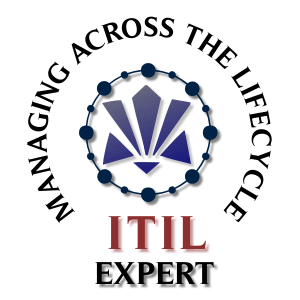


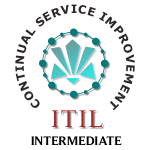
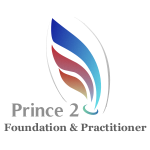

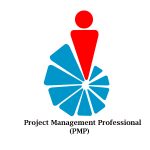

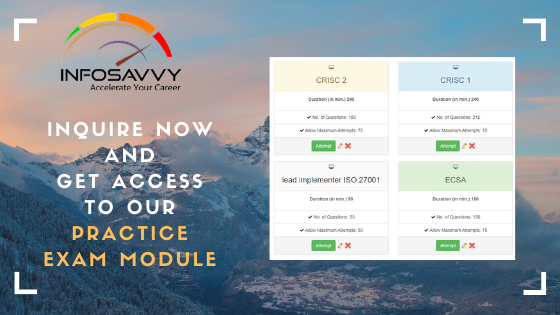
Reviews
There are no reviews yet.